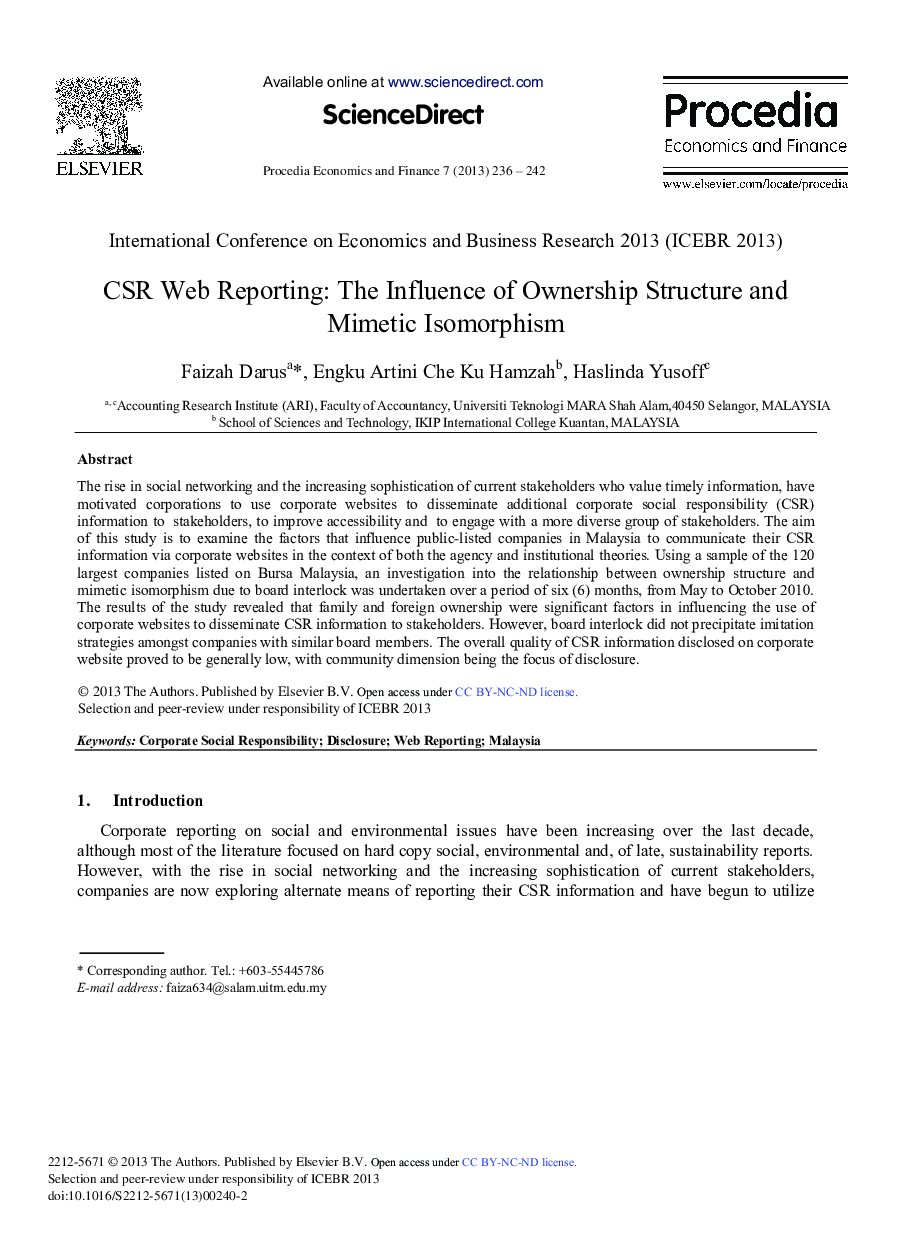| Article ID | Journal | Published Year | Pages | File Type |
|---|---|---|---|---|
| 982962 | Procedia Economics and Finance | 2013 | 7 Pages |
The rise in social networking and the increasing sophistication of current stakeholders who value timely information, have motivated corporations to use corporate websites to disseminate additional corporate social responsibility (CSR) information to stakeholders, to improve accessibility and to engage with a more diverse group of stakeholders. The aim of this study is to examine the factors that influence public-listed companies in Malaysia to communicate their CSR information via corporate websites in the context of both the agency and institutional theories. Using a sample of the 120 largest companies listed on Bursa Malaysia, an investigation into the relationship between ownership structure and mimetic isomorphism due to board interlock was undertaken over a period of six (6) months, from May to October 2010. The results of the study revealed that family and foreign ownership were significant factors in influencing the use of corporate websites to disseminate CSR information to stakeholders. However, board interlock did not precipitate imitation strategies amongst companies with similar board members. The overall quality of CSR information disclosed on corporate website proved to be generally low, with community dimension being the focus of disclosure.
